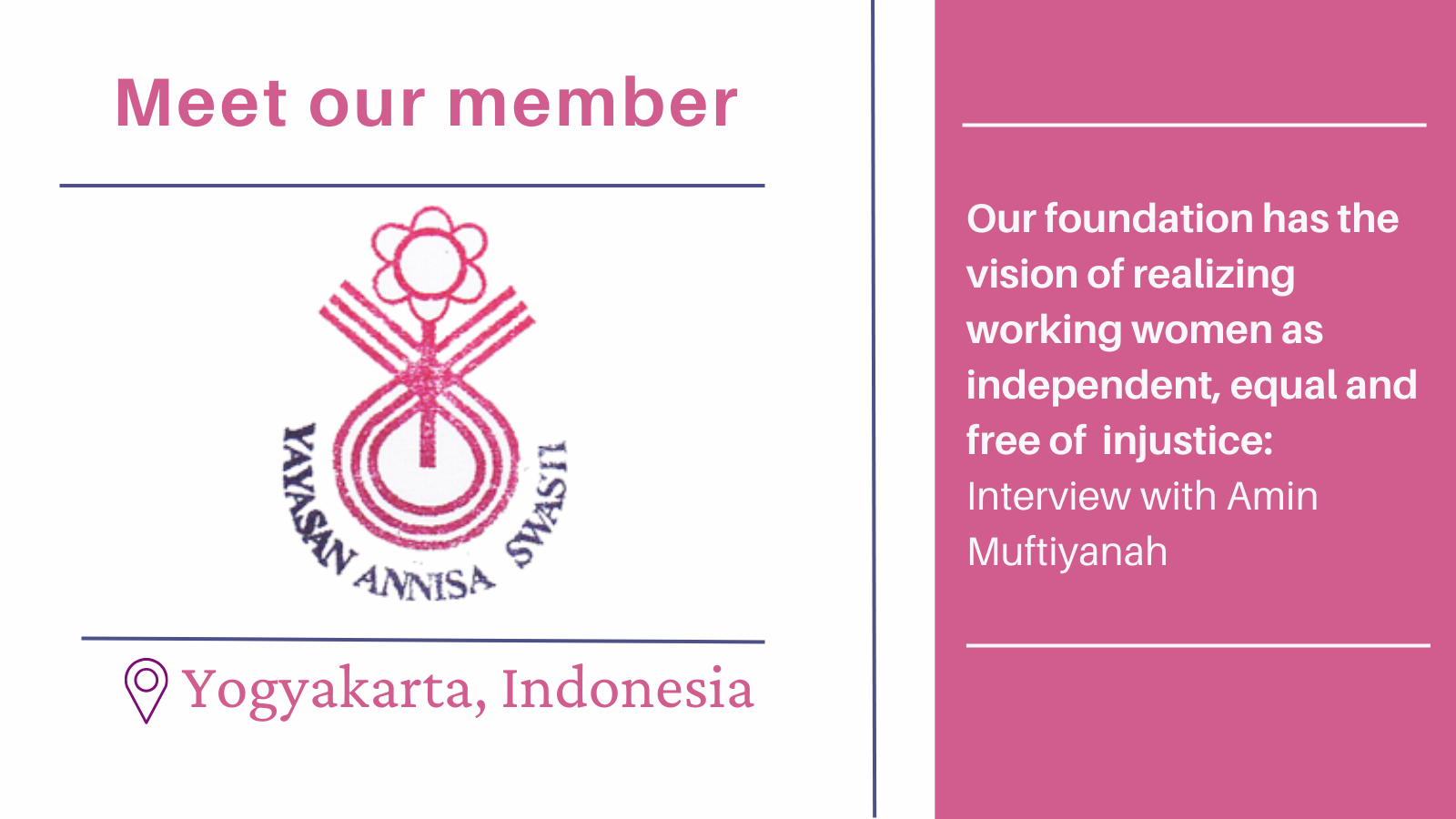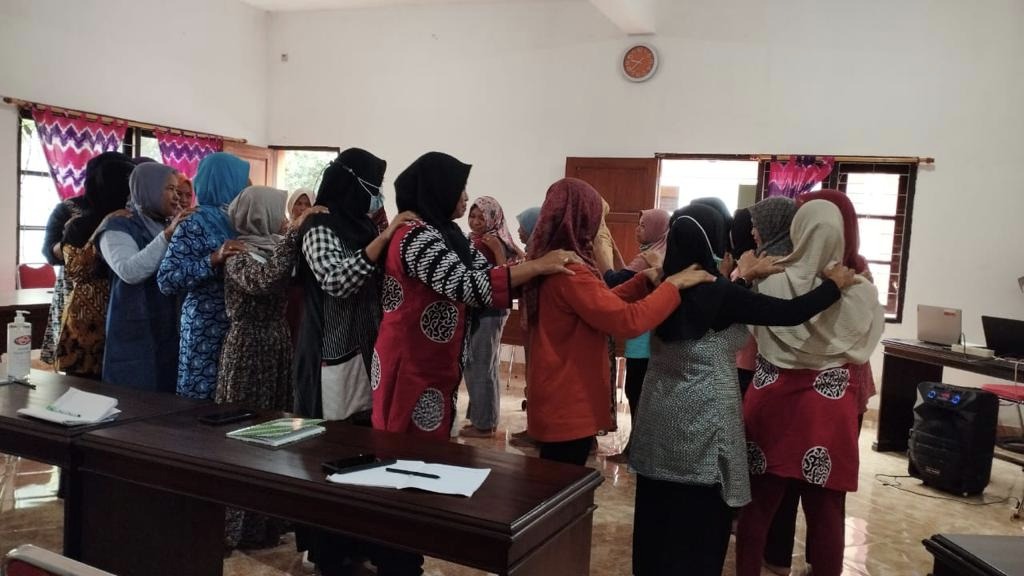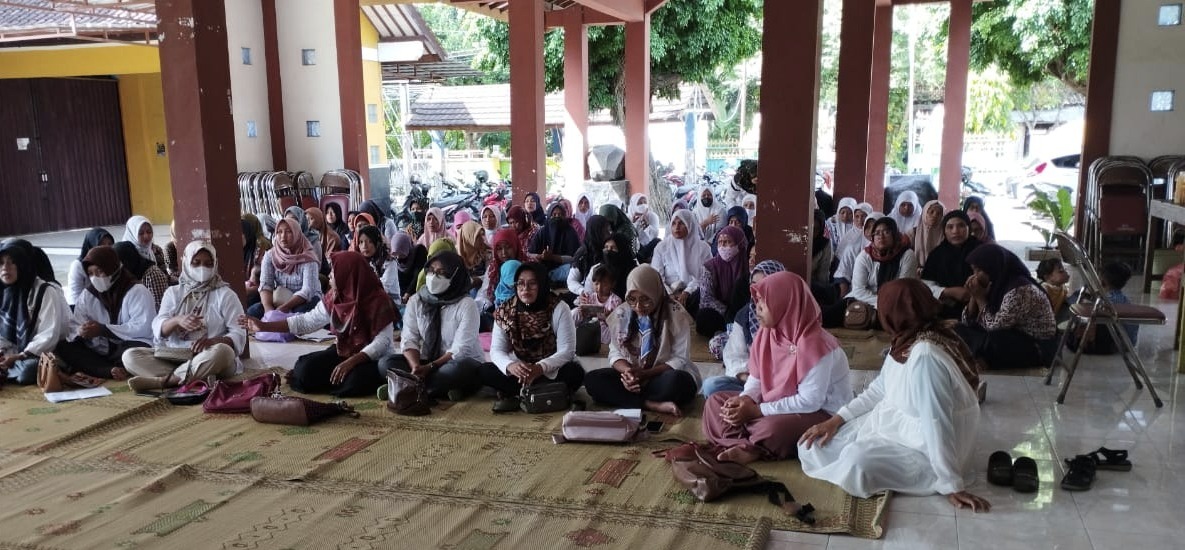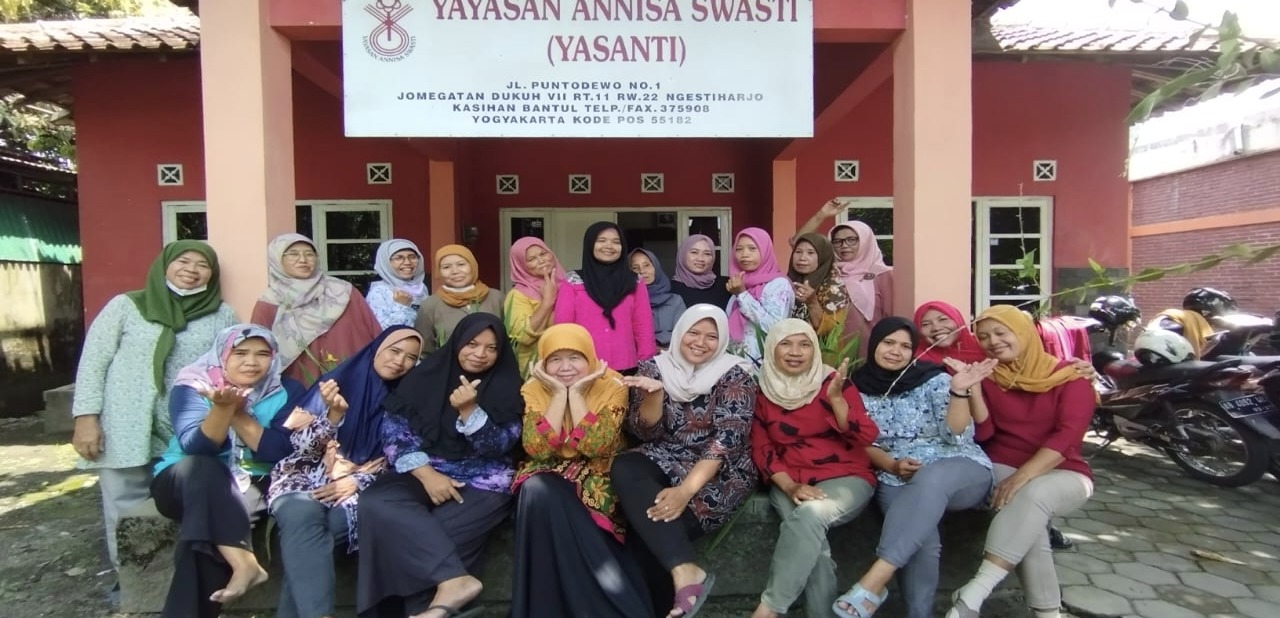Our foundation has the vision of realizing working women as independent, equal and free of injustice

Yayasan Annisa Swasti (YASANTI) is a member of GAATW in Yogyakarta, Indonesia. In 2023, Vivian Cartagena from the GAATW secretariat conducted this interview with Amin Muftiyanah, member of Yasanti, to learn more about the work of the organisation, the contexts in which it operates, and the communities it supports.
Vivian: How and why YASANTI was founded?
A: The Annisa Swasti Foundation (YASANTI) was founded as a non-governmental organization on September 28 around 1982. Its foundation has the vision of realizing working women who are independent and equal, free from injustice in a society configured through a transformative process. For example, our priorities and our missions started by building the capacity of working women through organizing, education and advocacy, so they are able to fight for their rights; developing economic access for working women to strengthen businesses, both individually and in groups; and to encourage policy changes that are conducive to working women.

In order to reach and meet Yasanti's vision and mission, our current activities include: providing assistance and organizing for working women, including industrial workers, women homebased workers who are self-employed, carrying workers (those who work in traditional markets in Yogyakrta), among others. In addition, we conduct capacity building for working women through education and training. On the other hand, in terms of policy advocacy we work with both the government and policy makers, as well as with employers and/or companies which promote the strengthening of the economy, both individually and organizationally.
Vivian: What are the main issues that you work on and which are the communities that you support?
A: Our main focus is the recognition and protection for women informal workers, by targeting women homeworkers and carrying workers in Yogyakarta and Central Java. This is done by conducting awareness and organizing for women homeworkers in those two places. Currently, 10 unions and 2 federations have been formed in Yogyakarta. In the other hand, in Central Java, 5 groups have been formed. In total, the number of members is less than 500 women homeworkers.
One strategy for us is to carry out capacity building through women's schools and regular meetings; also, conduct policy advocacy to the government and/or policy makers and employers/entrepreneurs. We are starting to strengthen the network at the local, national and international levels, so currently there is a national network from 7 provinces so we also promote strengthening of economic programs.
We are proud of many achievements in three different levels. At the local government level we have observed that the government has followed up on advocacy by conducting studies related to homeworkers and drafting regional regulations on employment; also, informal workers now can access government programs such as routine (annual) health checks, trainings, sewing tools assistance, which are involved in meetings related to employment and other supporting activities. Nowadays, they become a member of employment social security (which has never happened before)

On the other hand, at national level, there is already a draft Minister of Manpower Regulation regarding homeworkers, which was first proposed by the homeworker network; as well as an established national network consisting of 7 provinces.
Finally, at the community level we are pleased to see that routine consolidation meetings are held regarding the programs being implemented and will be carried out in the future by strengthening capacity, among others, related to organizing, labor, leadership, gender sensitive, strengthening the economy, media and digital marketing, cooperatives and other supports
We have also achieved a strengthened network both with fellow female workers, as well as outside female workers at the local, national and international levels
Vivian: How do you incorporate the perspectives and learning of women in your work?
A: We incorporate women's perspective planning and learning starting from activities, implementation, monitoring and evaluation that involve women workers directly. For example, in the case of program planning activities, we usually include their feedback and perspectives in the planning at the beginning of the year or according to needs for every program. Also, we incorporate new voices at the monthly regular meeting of members or consolidation of members.
Apart from that, we involve them according to their capacity, directly starting from the determination of materials, human resources/facilitators, methods, and related matters, according to needs of each program; as well as conducting regular or yearly reflection and evaluation meetings about their performance.
Vivian: What are the main dynamics and biggest challenges in the current context, not only thinking about women but also about the migration issue related to the risk of human trafficking?
A: The biggest challenge we face is that there is no recognition and protection for women informal workers, even though the number is 50% more than formal workers, plus the majority are women; thereby, losing her rights as a worker. Rights such as decent wages, work facilities, health and employment insurance, social security and other rights as workers.

In the absence of recognition and protection for women informal workers, most of them have low education (not even graduating from elementary school), lack of information and access to jobs that have protection, resulting in fraud, violence, inadequate work and others. So this is a potential vulnerability and the occurrence of trafficking in persons, especially against informal women workers.
Vivian: Thank you for this conversation, Amin. I don’t have any more questions. Is there anything you’d like to add?
A: I only want to thank you very much for giving us the opportunity to share about Yasanti's activities. If there are things that still need to be done, we are always pleased to help!
Vivian: Thank you very much for your time, it was a pleasure learning more about YASANTI.

